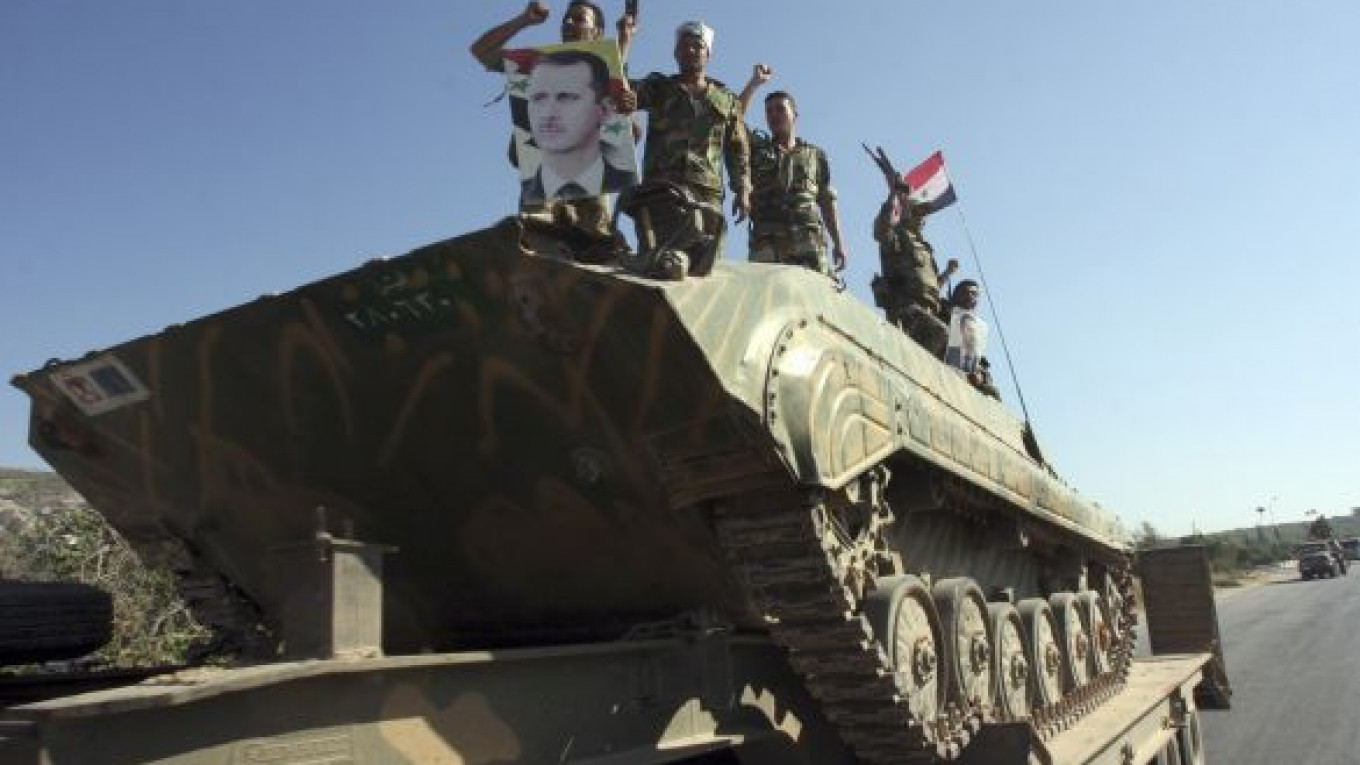UNITED NATIONS — Russia's ambassador to the United Nations urged Syria to implement promised reforms as soon as possible, while European members of the Security Council threatened Damascus that it could face tougher UN action if it continued a bloody crackdown on protesters.
Veto powers Russia and China, backed by India, South Africa and Brazil, have vehemently opposed the idea of slapping UN sanctions on Damascus, which Western diplomats say would be the logical next step for Syria.
Council diplomats said there were no signs that the five so-called BRICS nations have altered their positions despite the five-month crackdown by Syrian security forces on protesters in cities across the country.
Russian Ambassador Vitaly Churkin said Moscow had made clear to Damascus that it wants Syrian President Bashar Assad's promised reforms implemented as swiftly as possible.
"What we are telling them is that they need to have serious reforms as soon as possible, even though we do realize that it takes time, especially in a dramatic situation like this, you simply cannot carry out reforms overnight," he said Wednesday.
Asked whether he thought that new U.S. sanctions against Syria announced by Washington on Wednesday were helpful, Churkin said, "No."
U.S. Ambassador Susan Rice told the Security Council on Wednesday that the United States "is working together with its international partners to bring greater pressure to bear on the Syrian regime through further coordinated diplomatic and financial measures."
"We are also working with our partners to stem the flow of the weapons and ammunition that Syrian security forces, under Assad's authority, continue to use against peaceful protesters," she said, according to the text of her remarks.
Envoys of Britain, France, Germany and Portugal spoke to reporters after the closed-door session of the 15-nation council convened to assess Syria's compliance with last week's call by the Security Council for "an immediate end to all violence."
They said Damascus has ignored that demand.
At the meeting, UN deputy political affairs chief Oscar Fernandez-Taranco told council members that the violence had continued and the humanitarian situation remained dire, diplomats who attended the meeting said.
He said that nearly 2,000 civilians had been killed since March, 188 since July 31 — and 87 on Aug. 8 alone.
Britain's deputy UN Ambassador Philip Parham suggested to reporters that if Assad continued to ignore calls from the Security Council for an end to the clampdown, Damascus could face UN sanctions.
"If they continue … along their current path and they fail to heed those calls, then we believe the council must look at taking further steps to keep up the pressure on the Syrian regime," Parham said.
Parham's counterparts from France, Germany and Portugal echoed his warning that further steps — which is often diplomatic code for sanctions — would have to be discussed.
Syrian envoy Bashar Jaafari blasted the Europeans, accusing them of misleading reporters about the situation.
"They tried to manipulate the truth and to hide important facts and elements related to the so-called situation in Syria," he said, adding that the Europeans had deliberately ignored Assad's promises of reform and national dialogue.
He also took aim at British Prime Minister David Cameron.
"To hear the prime minister of England describing the riots and the rioters in England by using the term 'gangs,' while they don't allow us to use the same term for the armed groups and the terrorist groups in my country," he said. "This is hypocrisy. This is arrogance."
Parham dismissed Jaafari's comparison between the riots in Britain and the violence in Syria as "absurd."
The Security Council will take up Syria again next week.
A Message from The Moscow Times:
Dear readers,
We are facing unprecedented challenges. Russia's Prosecutor General's Office has designated The Moscow Times as an "undesirable" organization, criminalizing our work and putting our staff at risk of prosecution. This follows our earlier unjust labeling as a "foreign agent."
These actions are direct attempts to silence independent journalism in Russia. The authorities claim our work "discredits the decisions of the Russian leadership." We see things differently: we strive to provide accurate, unbiased reporting on Russia.
We, the journalists of The Moscow Times, refuse to be silenced. But to continue our work, we need your help.
Your support, no matter how small, makes a world of difference. If you can, please support us monthly starting from just $2. It's quick to set up, and every contribution makes a significant impact.
By supporting The Moscow Times, you're defending open, independent journalism in the face of repression. Thank you for standing with us.
Remind me later.






